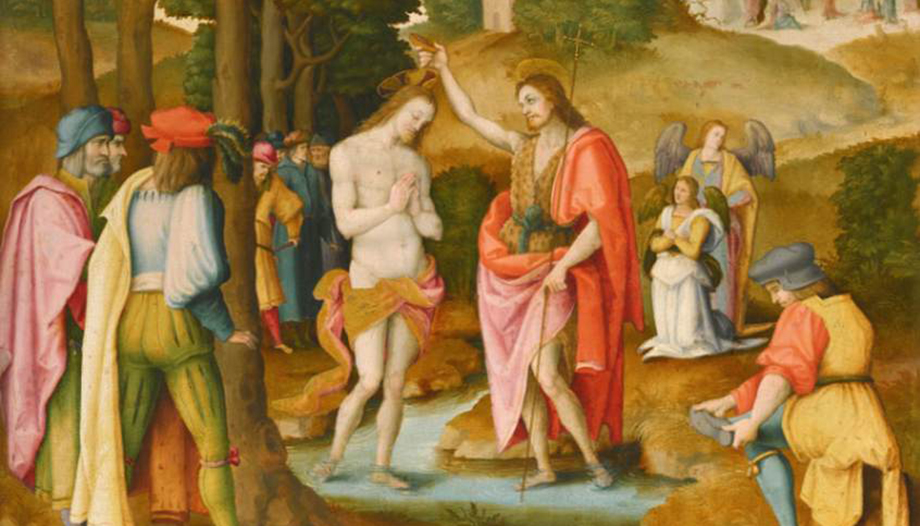The account of Jesus' baptism in the Jordan, according to Luke, is introduced in the Mass by Isaiah, with the exhortation to comfort Jerusalem because her tribulation has come to an end: "Speak to the heart of Jerusalem and cry to her that her bondage is fulfilled, her guilt has been atoned for".
John is present in the prophecy in which he identifies himself: "A voice cries out: "In the wilderness prepare the way of the Lord, in the steppe make a straight highway for our God".
And after the voice "the glory of the Lord will be revealed and all men together will see it". A prophecy that begins to be fulfilled in the theophany after the baptism of Jesus.
This is why Paul can write to Titus that this has happened, with words that evoke in a suggestive way the incarnation of the Word: "the grace of God has appeared, bringing salvation to all men". It is about our Savior Jesus Christ who "gave himself for us to redeem us from all iniquity".
Further on he expresses the same event in similar words: "when the goodness of God, our Savior, and his love for mankind was manifested, he saved us, not by righteous deeds which we had done, but by his mercy, with a water that regenerates and renews in the Holy Spirit, which God has poured out upon us abundantly through Jesus Christ, our Savior".
Jesus is, then, the grace of God that has appeared, and the goodness of God and his love for men that have also manifested themselves, have become visible and work through the water that regenerates, without merit on our part.
Paul in these two texts uses the Greek verb "epiphaino" (to appear, to shine, to manifest), which is the same verb used by Luke in the hymn of Zechariah when, after speaking of the mission of his son John, he says that "Thanks to the tenderness and mercy of our God, a sun will visit us from above, to shine on those who are in darkness". John goes ahead of Jesus and tells us what his baptism will be like: with the Holy Spirit and fire. Fire that burns away sins and the Holy Spirit that makes us children of God.
The grace, goodness and love of God for mankind appeared to the Magi after their star appeared. It is manifested today in his Baptism, the second Epiphany. In Luke's account the baptism of Jesus is cited as having already taken place.
More central is the opening of the heavens and the prayer of Jesus: now there is no longer any distance between heaven and earth. The embrace of the Father in Christ extends to creation and to his children.
We see the Holy Spirit and hear the voice of the Father. To each one of us he says: "You are my beloved Son, with you I am well pleased". Let us listen to those words with present faith.
Homily on the readings of the Baptism of the Lord
The priest Luis Herrera Campo offers its nanomiliaa small one-minute reflection for these readings.









